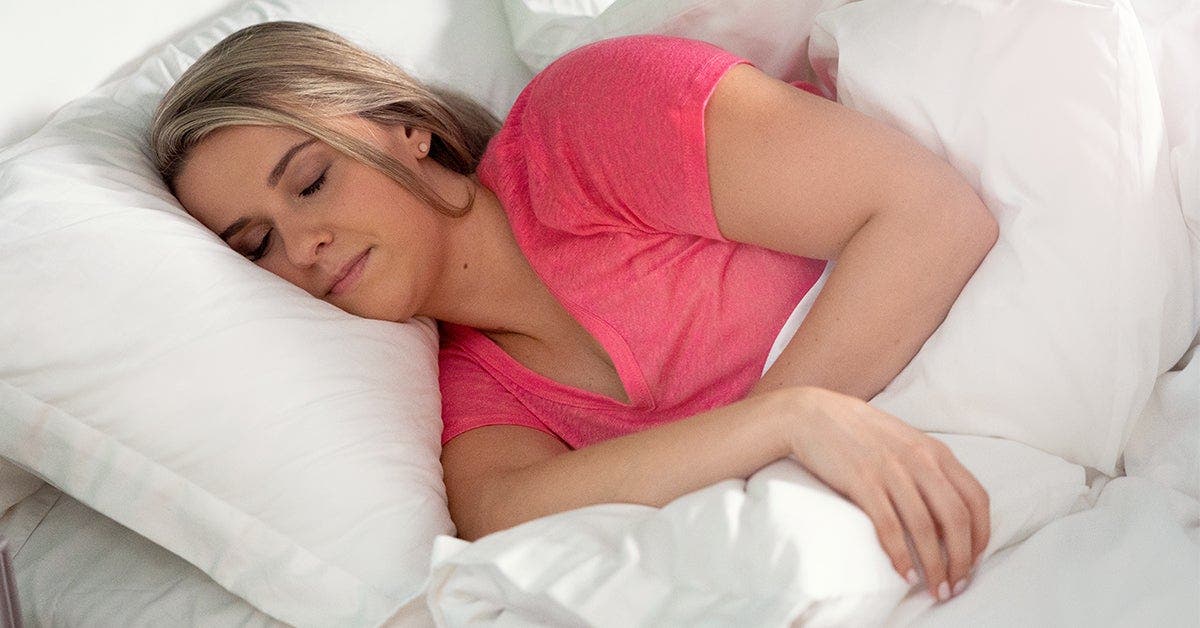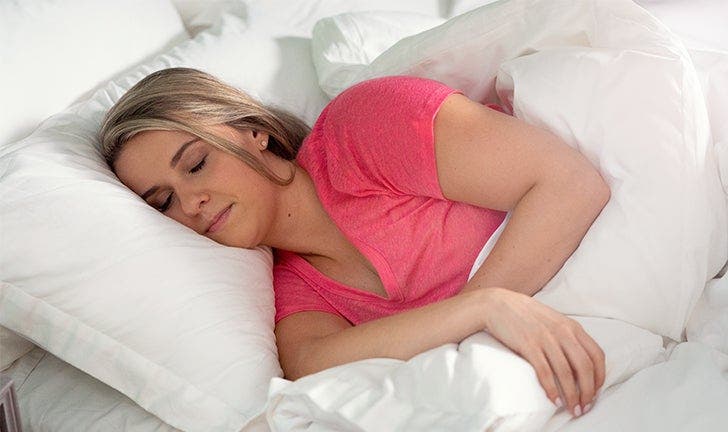What does it mean to be a light sleeper ?


Are you constantly waking up from sleep because of every little noise, light or even smell? Well if you answered yes to any or all of these you might consider yourself a light sleeper.
Generally speaking, a light sleeper is someone who wakes up easily in the night due to even small changes in their environment. Some of the most common changes that cause light sleepers to wake are:
- Sounds - even quiet ones from indoors and outdoors
- Lights - such as car headlights from outside or lights outside a closed door
- Smells - such as a person cooking
Whether or not you are a light sleeper, a heavy sleeper or somewhere in between is often a result of something called your “arousal threshold.” This is essentially the intensity of a stimulus needed to cause a person to wake from sleep. Light sleepers typically have a low threshold, meaning even minor stimulus can cause them to wake up. This low threshold can lead light sleepers to suffer in both sleep quantity and quality.
The sleep stages
Understanding the sleep stages is an important component of understanding why people are light sleepers. During the average night we cycle through 90 minute intervals of NREM (non–rapid eye movement) and REM (rapid eye movement) sleep. REM sleep is where we experience the deepest most restorative sleep and dream.
It’s thought that light sleepers may not cycle through the deep stages of sleep as often or at all during the night. While in the lighter stages of sleep we are much more susceptible to environmental stimulants. If light sleepers aren’t getting into REM sleep, they also are not getting deep restorative sleep.
Age also plays a role in how much time we spend in deep sleep as the older we get the less time we spend in REM sleep. As a result, more older people complain about being light sleepers.
Other sleep factors
Doctors have also found that differences in how people respond while sleeping can be related to brain wave spikes known as “sleep spindles.” In general, sleep spindles are believed to protect the brain from external stimulants like noise and sound. When a person produces more sleep spindles they are less likely to respond to stimulants and sleep deeper. Unfortunately, more research is needed to confirm these findings and scientists have yet to figure out how to encourage more sleep spindles in humans.
Some additional factors contributing to light sleep include genetics and undiagnosed sleep disorders. There are also some lifestyle factors that can impact a person's arousal threshold. This includes the amount of time a person is awake during the day and a person’s mindset before going to sleep. For example a person who is anxious before going to bed might be woken up easier.
So while many people attribute their poor sleep quality to just being a light sleeper, it might actually be more beneficial to look at why they are not able to reach deep sleep. The good news is that for many light sleepers there are plenty of factors within their control that can improve their sleep quality.
If noises prevent you from falling asleep or staying asleep:
- Consider trying earplugs. While they can take a bit to get used to, earplugs can do wonders for light sleepers. To find the best earplugs for you, consider testing out a few different styles or materials.
- Consider listening to white noise or soothing music. This might seem counterintuitive, but a constant soothing stimulus can cause a person to be less responsive to other sounds while sleeping
If you find lights are waking you up:
- Consider trying an eye mask. Like earplugs, these can take a bit of getting used to but can ultimately help block out lights that cause light sleepers to wake.
- Consider investing in blackout curtains. If your curtains just aren’t cutting it some heavy duty blackout curtains should do the trick.
Improve your bedtime routine
- Practicing good sleep hygiene can mean the difference between reaching deep sleep or not.
- Try and stick to a consistent sleep schedule that involves going to bed and waking up around the same time every night.
- Avoid caffeine and alcohol before bed as these can prohibit you from reaching deep REM sleep.
- Avoid exposure to blue light before bed. This includes all screens such as phones, computers and televisions. The blue light of these devices mimics daylight and prevents the brain from creating melatonin, an essential hormone in sleep.
- Consider engaging in meditation or other relaxing activities to calm your mind before sleep.
It’s important to note that light sleepers don’t typically have conditions like insomnia. However, if your life is greatly affected by a lack of quality sleep, a visit to your doctor could be beneficial. They may recommend a sleep study to look for any sleep disorders or offer medication to help encourage deeper sleep.
Overall, being a light sleeper can be a frustrating experience. Luckily, research shows that many of the reasons people are light sleepers can be corrected by simple lifestyle and environmental changes.
